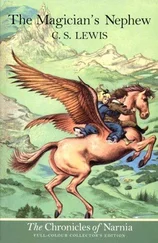Clive Lewis - That Hideous Strength
Здесь есть возможность читать онлайн «Clive Lewis - That Hideous Strength» — ознакомительный отрывок электронной книги совершенно бесплатно, а после прочтения отрывка купить полную версию. В некоторых случаях можно слушать аудио, скачать через торрент в формате fb2 и присутствует краткое содержание. Жанр: Религиоведение, Фэнтези, на английском языке. Описание произведения, (предисловие) а так же отзывы посетителей доступны на портале библиотеки ЛибКат.
- Название:That Hideous Strength
- Автор:
- Жанр:
- Год:неизвестен
- ISBN:нет данных
- Рейтинг книги:5 / 5. Голосов: 1
-
Избранное:Добавить в избранное
- Отзывы:
-
Ваша оценка:
- 100
- 1
- 2
- 3
- 4
- 5
That Hideous Strength: краткое содержание, описание и аннотация
Предлагаем к чтению аннотацию, описание, краткое содержание или предисловие (зависит от того, что написал сам автор книги «That Hideous Strength»). Если вы не нашли необходимую информацию о книге — напишите в комментариях, мы постараемся отыскать её.
That Hideous Strength — читать онлайн ознакомительный отрывок
Ниже представлен текст книги, разбитый по страницам. Система сохранения места последней прочитанной страницы, позволяет с удобством читать онлайн бесплатно книгу «That Hideous Strength», без необходимости каждый раз заново искать на чём Вы остановились. Поставьте закладку, и сможете в любой момент перейти на страницу, на которой закончили чтение.
Интервал:
Закладка:
VI
Jane had gone into the garden to think. She accepted what the Director had said, yet it seemed to her nonsensical. His comparison between Mark’s love and God’s (since apparently there was a God) struck her nascent spirituality as indecent and irreverent. “Religion” ought to mean a realm in which her haunting female fear of being treated as a thing, an object of barter and desire and possession, would be set permanently at rest, and what she called her “true self” would soar upwards and expand in some freer and purer world. For still she thought that “Religion” was a kind of exhalation or a cloud of incense, something steaming up from specially gifted souls towards a receptive heaven. Then, quite sharply, it occurred to her that the Director never talked about Religion, nor did the Dimbles nor Camilla. They talked about God. They had no picture in their minds of some mist steaming upward: rather of strong, skilful hands thrust down to make and mend, perhaps even to destroy. Supposing one were a thing after all-a thing designed and invented by Someone Else and valued for qualities quite different from what one had decided to regard as one’s true self? Supposing all those people who, from the bachelor uncles down to Mark and Mother Dimble, had infuriatingly found her sweet and fresh when she wanted them to find her also interesting and important, had all along been simply right and perceived the sort of thing she was? Supposing Maleldil on this subject agreed with them and not with her? For one moment she had a ridiculous and scorching vision of a world in which God Himself would never understand, never take her with full seriousness, Then, at one particular corner of the gooseberry patch, the change came.
What awaited her there was serious to the degree of sorrow and beyond. There was no form nor sound. The mould under the bushes, the moss on the path, and the little brick border, were not visibly changed. But they were changed. A boundary had been crossed. She had come into a world, or into a Person, or into the presence of a Person. Something expectant, patient, inexorable, met her with no veil or protection between. In the closeness of that contact she perceived at once that the Director’s words had been entirely misleading. This demand which now pressed upon her was not, even by analogy, like any other demand. It was the origin of all right demands and contained them. In its light you could understand them: but from them you could know nothing of it. There was nothing, and never had been anything, like this. And now there was nothing except this. Yet also, everything had been like this: only by being like this had anything existed. In this height and depth and breadth the little idea of herself which she had hitherto called me dropped down and vanished, unfluttering, into bottomless distance, like a bird in space without air. The name me was the name of a being whose existence she had never suspected, a being that did not yet fully exist but which was demanded. It was a person (not the person she had thought) yet also a thing-a made thing, made to please Another and in Him to please all others-a thing being made at this very moment, without its choice, in a shape it had never dreamed of. And the making went on amidst a kind of splendour or sorrow or both, whereof she could not tell whether it was in the moulding hands or in the kneaded lump.
Words take too long. To be aware of all this and to know that it had already gone made one single experience. It was revealed only in its departure. The largest thing that had ever happened to her had, apparently, found room for itself in a moment of time too short to be called time at all. Her hand closed on nothing but a memory, and as it closed, without an instant’s pause, the voices of those who have not joy rose howling and chattering from every corner of her being.
“Take care. Draw back. Keep your head. Don’t commit yourself,” they said. And then more subtly, from another quarter, “You have had a religious experience. This is very interesting. Not everyone does. How much better you will now understand the Seventeenth Century poets!” Or from a third direction, more sweetly, “Go on. Try to get it again . . . It will please the Director.”
But her defences had been captured and these counterattacks were unsuccessful.
Fifteen
I
ALL the house at St. Anne’s was empty but for two rooms. In the kitchen, drawn a little closer than usual about the fire and with the shutters closed, sat Dimble and MacPhee and Denniston and the women. Removed from them by many a long vacancy of stair and passage, the Pendragon and Merlin were together in the Blue Room.
If anyone had gone up the stairs and onto the lobby outside the Blue Room, he would have found something other than fear that barred his way-an almost physical resistance. If he had succeeded in forcing his way forward against it, he would have come into a region of tingling sounds that were clearly not voices though they had articulation: and if the passage were quite dark he would probably have seen a faint light, not like fire or moon, under the Director’s door. I do not think he could have reached the door itself unbidden. Already the whole house would have seemed to him to be tilting and plunging like a ship in a Bay of Biscay gale. He would have been horribly compelled to feel this earth not as the base of the universe but as a ball spinning and rolling onwards, both at delirious speed, and not through emptiness but through some densely inhabited and intricately structured medium. He would have known sensuously, until his outraged senses forsook him, that the visitants in that room were in it not because they were at rest but because they glanced and wheeled through the packed reality of heaven (which men call empty space) to keep their beams upon this spot of the moving earth’s hide.
The Druid and Ransom had begun to wait for these visitors soon after sundown. Ransom was on his sofa. Merlin sat beside him, his hands clasped, his body a little bent forward. Sometimes a drop of sweat trickled coldly down his grey cheek. He had at first addressed himself to kneel but Ransom forbade him. “See thou do it not!” he had said. “Have you forgotten that they are our fellow-servants?” The windows were uncurtained, and all the light that there was in the room came thence: frosty red when they began their waiting, but later star-lit.
Long before anything happened in the Blue Room the party in the kitchen had made their ten o’clock tea. It was while they sat drinking it that the change occurred. Up till now they had instinctively been talking in subdued voices, as children talk in a room where their elders are busied about some august incomprehensible matter, a funeral, or the reading of a will. Now of a sudden they all began talking loudly at once, each, not contentiously but delightedly, interrupting the others. A stranger coming into the kitchen would have thought they were drunk, not soddenly but gaily drunk: would have seen heads bent close together, eyes dancing, an excited wealth of gesture. What they said, none of the party could ever afterwards remember. Dimble maintained that they had been chiefly engaged in making puns. MacPhee denied that he had ever, even that night, made a pun, but all agreed that they had been extraordinarily witty. If not plays upon words, yet certainly plays upon thoughts, paradoxes, fancies, anecdotes, theories laughingly advanced, yet, on consideration, well worth taking seriously, had flowed from them and over them with dazzling prodigality. Even Ivy forgot her great sorrow. Mother Dimble always remembered Denniston and her husband as they had stood, one on each side of the fireplace, in a gay intellectual duel, each capping the other, each rising above the other, up and up, like birds or aeroplanes in combat. If only one could have remembered what they said! For never in her life had she heard such talk-such eloquence, such melody (song could have added nothing to it), such toppling structures of double meaning, such sky-rockets of metaphor and allusion.
Читать дальшеИнтервал:
Закладка:
Похожие книги на «That Hideous Strength»
Представляем Вашему вниманию похожие книги на «That Hideous Strength» списком для выбора. Мы отобрали схожую по названию и смыслу литературу в надежде предоставить читателям больше вариантов отыскать новые, интересные, ещё непрочитанные произведения.
Обсуждение, отзывы о книге «That Hideous Strength» и просто собственные мнения читателей. Оставьте ваши комментарии, напишите, что Вы думаете о произведении, его смысле или главных героях. Укажите что конкретно понравилось, а что нет, и почему Вы так считаете.












